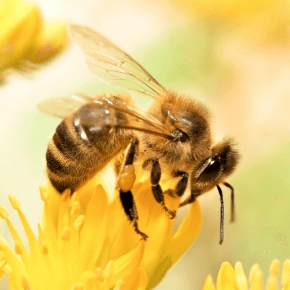Weybridge Gives First Aid Advice for Bee and Wasp Stings

Cats and dogs are naturally curious, and in warmer months, they love exploring gardens and chasing insects. Unfortunately, this sometimes leads to painful bee or wasp stings! Weybridge's team have advice for Surrey pet owners on what to do if your pet gets stung. Your first stop should be downloading our handy insect guide.
Call us on 01932 855856 if you are concerned about your pet following an insect sting.
Download our Insect Guide
Why do cats and dogs get stung?
Bees and wasps in Surrey are most active in spring and summer, buzzing around flowers where pets love to sniff and play. Many stings happen when a pet tries to catch an insect or accidentally disturbs one.
Signs of a bee or wasp sting
If you didn't see your pet get stung, look out for:
- Sudden shaking, licking, or pawing at a specific area
- Swelling, often around the face or paws
- Redness or irritation at the sting site
- Unusual vocalising
Severe reactions (rare but serious) include:
- Breathing difficulties (especially in short-nosed breeds)
- Vomiting or diarrhoea
- Signs of an allergic reaction (anaphylaxis)
First aid for bee and wasp stings
Weybridge's team explain that if you can see the sting, it can be gently scraped away with a flat object like a credit card - don't use tweezers as they may squeeze more venom into the skin.
- Bee stings: Apply a paste of bicarbonate of soda and water
- Wasp stings: Dab the area with vinegar or lemon juice
- Unknown sting? Apply a cold pack to reduce swelling
When to call a vet
If swelling worsens, breathing is affected, or your pet seems distressed, call our Weybridge veterinary team on 01932 855856. Some pets may need pain relief or antihistamines - only give medication prescribed by a vet. For peace of mind, print our insect guide and keep it handy!
Download our Insect Guide

